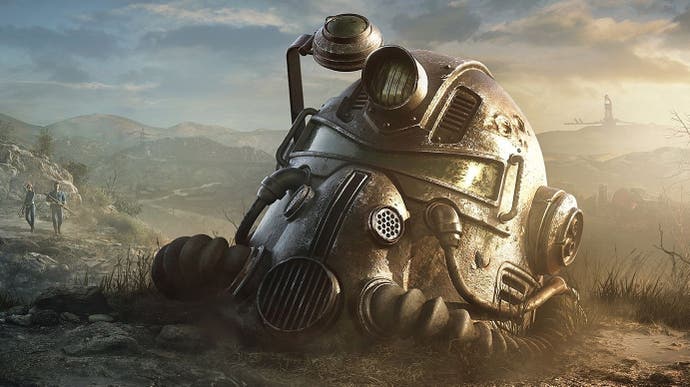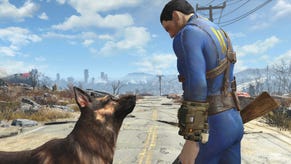New report says Fallout 76 development blighted by poor management and mandatory crunch
Leading to "exodus" of senior employees.
A new report into the development of Bethesda's widely derided Fallout 76 has painted a picture of a studio in disarray, as poor management, a lack of design direction, and engine challenges created an environment of apathy, confusion, crunch, and burnout, and a game that ultimately failed to resonate with players.
Announced in 2018 and launched the following year, Fallout 76 - an online take on Bethesda's beloved post-apocalyptic RPG series - was less than well-received at launch. Eurogamer's Wesley Yin-Poole even went as far as to call it a "bizarre, boring, broken mess" before slapping it with an Avoid badge.
Now, a lengthy new report from Kotaku - based on conversations with 10 former employees of Bethesda and parent company ZeniMax Media - has shed fresh light on the troubled development that lead to such a poorly received game, one seemingly doomed from the start.
It's claimed many of the team at Bethesda's Rockville studio, which lead development of Fallout 76, had very little enthusiasm for senior management's push to create a live-service version of Fallout, having joined the company as fans of the studio's single-player games.
According to Kotaku's report, matters weren't helped by a lack of coherent direction from senior management as to what Fallout 76 was actually supposed to be. It's claimed that while Bethesda's Todd Howard was technically in charge of the project, he spent most of his time working on Starfield, while design director Emil Pagliarulo "didn't seem to want to be involved with the product at all. He didn’t want to have any contact with it... or read anything that we put in front of him."
Problems were reportedly further compounded by the considerable technical challenges of adapting Bethesda's single-player-focused Creation Engine for multiplayer. Management is said to have believed that using Creation Engine would be the "lesser evil", but Kotaku's sources claim the decision ultimately created complex problems that lead to substantially increased workloads across both design and QA, with employees regularly racking up between 10 to 16 hours of work a day. Multiple sources told Kotaku that crunch on Fallout 76 was mandatory, and it's said that Rob Gray, ZeniMax's director of QA, continually deflected or denied crunch was happening in his department when the issue was raised by employees.
Kotaku's sources say the considerable time requirements and technical challenges associated with adapting the Creation Engine for multiplayer were not only demoralising but the main reason management insisted on ditching one of the Fallout series' key staples, NPCs. It's claimed "almost none" of Bethesda's designers wanted the game to launch without NPCs, but executive producer Howard refused to budge on the issue up to release.
Senior management reportedly also chose to ignore designers' concerns around other issues during development, including griefing, multiplayer stability, and quest checkpointing.
Ultimately, the turmoil of Fallout 76's development - which reportedly required Bethesda to pull staff from Starfield and Arkane Studios' Redfall to complete, two games that have since been delayed - is said to have driven an exodus of senior developers who had worked on some of Bethesda's biggest titles, including the likes of Fallout 3 and Skyrim.
As to whether Bethesda senior management has learned any lessons from the development of Fallout 76, Kotaku's sources remained cynical. "It would be great if something like [Activision Blizzard worker advocacy group] A Better ABK existed for Bethesda," one person said, "but everyone is terrified... because [Bethesda] HR is super cutthroat". And things reportedly haven't improved under Microsoft, which continues to emphasise a "hands-off" policy when dealing with its studio acquisitions.
All in all, Kotaku's report offers another depressing glimpse into the inner workings of the games industry, but it's one that's well worth a read.










